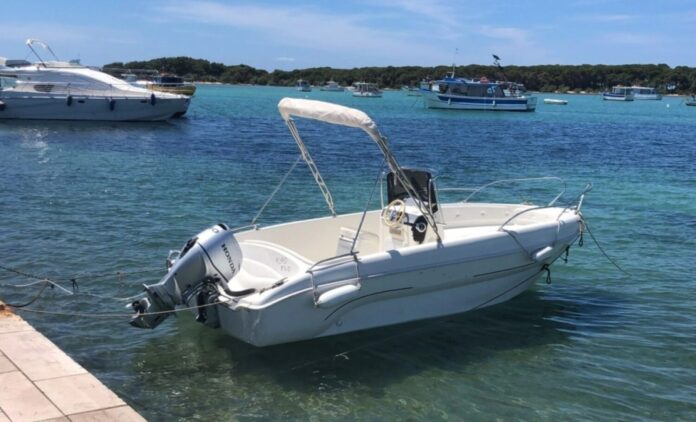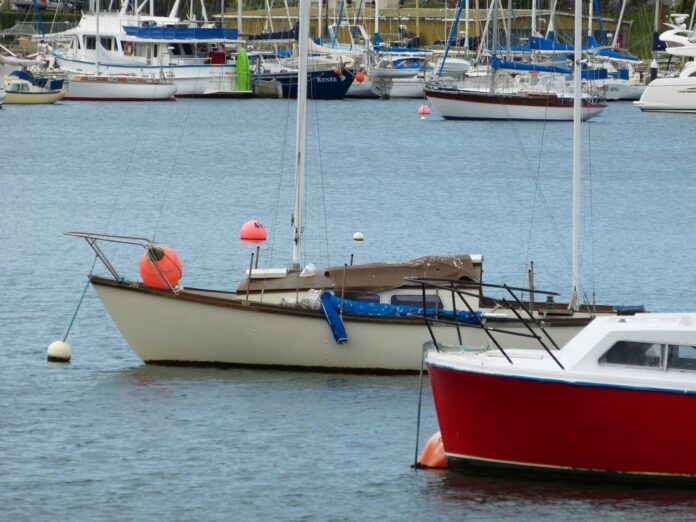Picture this: sun overhead, salty breeze in your hair, and crystal-clear waves beneath you. Sounds like paradise, right? But before that dream becomes a reality, there’s one little detail to handle—registration.
Key Points:
- Boat registration in Spain requires specific documents.
- Choosing the right registration type depends on your nationality and intended use.
- Bureaucracy can be a headache, but patience and preparation help.
- Local maritime authorities enforce strict regulations.
- Knowing tax implications saves money in the long run.
How to Register Your Boat in Spain as a Foreign Owner

Registration isn’t just about ticking boxes. Without it, your vessel stays docked, and nobody wants that. Here’s how to do it right:
1. Choose the Right Registration Type
Spain offers different registration categories, each suited for a specific purpose. The right choice depends on what you plan to do with your vessel.
- Recreational Use: Perfect for those who want to sail for personal enjoyment without commercial activities. The process is straightforward, but some taxes still apply.
- Commercial Use: Required if you plan to charter, rent, or operate any business related to your vessel. Extra inspections, licenses, and strict safety standards apply.
- Foreign-Flagged Boats: Some owners register under their home country’s flag to bypass Spanish taxation. Though possible, this option comes with legal considerations and certain limitations in Spanish waters.
Choose wisely. Changing later means additional paperwork and costs.
2. Gather the Essential Documents
Paperwork decides how smooth or frustrating the process will be. Before heading to the maritime authorities, have everything ready.
- Proof of ownership (bill of sale or purchase invoice)
- Passport or national ID
- Certificate of seaworthiness (ITB) issued by an authorized entity
- Insurance policy (mandatory for Spanish waters)
- VAT payment proof (if applicable)
Some applications need extra documents, depending on the type of registration. Always double-check with local authorities.
3. Submit Everything to the Right Office
In Spain, boat registration happens at the Capitanía Marítima (Maritime Captaincy). Locate the nearest office and hand over the documents. Some applications can be started online, but a personal visit often speeds up the process. Fees apply, so prepare for that as well.
Why Buying a Used Boat in Ibiza Makes Registration Easier
Getting a vessel already registered in Spain simplifies everything. Less paperwork, fewer headaches. Many second-hand vessels come with the proper documentation, saving time and avoiding unexpected legal issues.
If you want a hassle-free option, check out used boats for sale Ibiza. Many sellers offer fully documented vessels, making ownership transfer quicker. This option suits those who want to hit the water without dealing with excessive bureaucracy.
What Taxes and Fees Apply When Registering?
Registration comes with financial obligations. The total cost depends on the boat’s value, size, and type of use.
- Matriculation Tax (12%) – Applies to certain registrations, mainly commercial and larger vessels.
- VAT (21%) – If the vessel was bought outside Spain or VAT was unpaid at purchase, you’ll need to settle it.
- Tonnage Tax – A small fee based on the vessel’s weight.
- Annual Fees – Covering mooring, inspections, and necessary licenses.
Some exemptions exist, especially for older or previously taxed vessels. Check with a tax advisor to avoid unnecessary expenses.
How to Get the Right License for Boating in Spain

Spain requires licenses for certain vessels based on size and engine power. If you plan to operate a vessel legally, securing the right permit is necessary.
- No License Needed: Boats under 5m with engines below 15hp.
- Licencia de Navegación: Allows operation of vessels up to 6m, limited to daytime use.
- PNB (Patrón de Navegación Básica): Covers up to 8m, suitable for short coastal trips.
- PER (Patrón de Embarcaciones de Recreo): For vessels up to 15m, allowing both day and night use.
- Yacht Master Certifications: Required for larger vessels and long-distance sailing.
If unsure, yacht club Ibiza schools offer training and certification. Getting the right license early avoids fines and legal trouble.
Common Pitfalls to Avoid During Registration
Mistakes can delay or even block your registration. Learn from others and avoid these errors.
- Ignoring VAT payments: Authorities take this seriously, and failure to pay leads to fines.
- Choosing the wrong category: If registered incorrectly, reclassification takes time and money.
- Submitting expired documents: Every paper must be current, or the application gets rejected.
- Skipping inspections: Some boats require ITB certification before approval.
Preparation helps. Double-check every requirement before submitting your application.
Finding the Best Mooring Spots After Registration
Once everything is sorted, choosing the right mooring location is the next step. Location determines accessibility, convenience, and security.
Popular marinas include:
- Marina Ibiza: Offers luxury services and a prime location near the city.
- Marina Santa Eulalia: Located close to yacht club Ibiza, great for socializing with other sailors.
- Club Náutico Ibiza: Well-equipped for long-term berthing, with essential maintenance services.
Each marina has different pricing structures, so compare options before committing.
What to Expect After Registering Your Boat
Once approved, you’ll receive:
- Registration certificate – The official document proving legal registration.
- Unique maritime identification number – Displayed on the hull.
- Navigation permit – Needed for legally operating in Spanish waters.
- Tax identification number (if applicable) – Required for tax-related matters.
Keep all documents onboard in case of inspections. Spanish maritime authorities frequently check for compliance.
Final Thoughts: Making Spanish Waters Your Playground
Boat registration in Spain takes effort, but the reward is priceless—freedom on the open sea. Take the proper steps, avoid common mistakes, and soon, you’ll be anchoring at yacht club Ibiza, enjoying that perfect Mediterranean sunset.











